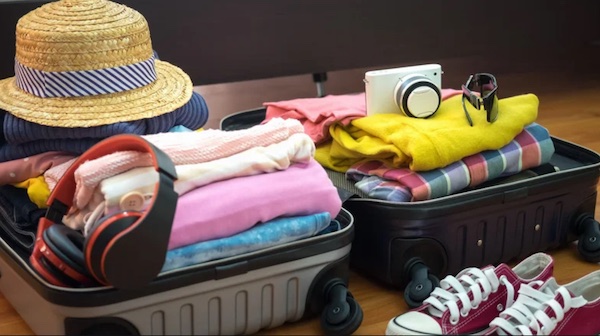Smart Tips for Budget Travelers: The Ultimate Guide
Best Ways to Save Money on Travel: A Comprehensive Guide
Traveling is one of life’s greatest joys, offering new experiences, cultures, and perspectives. However, the costs associated with travel can add up quickly, making it a challenge for budget-conscious travelers.
Whether planning a solo adventure, a family vacation, or a backpacking trip worldwide, plenty of ways exist to save money without compromising the experience.
This comprehensive guide will explore the best strategies for traveling smarter and stretching your budget further.
1. Plan and Book in Advance
One of the most effective ways to save money on travel is to plan ahead. Early bookings often offer discounted rates for flights, accommodations, or activities.
- Flights: Airlines often release tickets months in advance, and prices are lower when you book early. Use fare comparison websites like Skyscanner, Google Flights, and Kayak to track prices and set deal alerts.
- Hotels and Rentals: Booking accommodations ahead of time secures lower prices and offers more choices. Websites like Booking.com, Airbnb, and Expedia often have early bird discounts.
- Activities: Many attractions, tours, and museums offer discounts for bookings. Research online and see if buying tickets early can help you save.
2. Be Flexible with Travel Dates and Destinations
Flexibility is key when it comes to budget-friendly travel.
- Off-Peak Travel: Flying and traveling during off-peak seasons can save you significant money. Avoid holidays, school vacations, and peak summer months.
- Midweek Flights: Flights on Tuesdays and Wednesdays are generally cheaper than those on weekends.
- Alternative Destinations: Consider visiting underrated or less touristy destinations where accommodations, food, and activities are cheaper.
3. Use Travel Rewards and Points
Frequent travelers can benefit immensely from travel rewards programs, credit card points, and airline miles.
- Credit Cards with Travel Rewards: Sign up for credit cards that offer sign-up bonuses, miles, or cashback on travel-related expenses.
- Frequent Flyer Programs: Join airline loyalty programs to accumulate miles for free or discounted flights.
- Hotel Loyalty Programs: Many hotel chains offer loyalty programs that provide discounts, free nights, and other perks.
- Point Redemption: Use accumulated points to book flights, hotel stays, or car rentals, significantly reducing travel expenses.
4. Travel Light to Avoid Baggage Fees
Packing efficiently can save money on checked baggage fees and make traveling more convenient.
- Carry-On Only: Many budget airlines charge extra for checked luggage. Packing light and sticking to carry-on bags can help avoid unnecessary fees.
- Weigh Your Luggage: If you must check in a bag, ensure it meets the airline’s weight limits to avoid overweight charges.
- Use Packing Cubes: These help organize your luggage efficiently, allowing you to pack more into a smaller space.
5. Choose Budget Airlines and Alternative Transportation
Airfare can be one of the most expensive parts of traveling, but there are ways to cut costs.
- Budget Airlines: Consider flying with low-cost carriers like Ryanair, Spirit Airlines, or AirAsia. Be mindful of their additional fees and restrictions.
- Alternative Airports: Flying into a smaller or alternative airport can sometimes be significantly cheaper than major hubs.
- Public Transport: To save money, avoid taxis or ride-sharing and instead use public transportation like buses, subways, and trains.
- Train and Bus Travel: In some regions, taking a train or bus instead of flying can be a more economical and scenic option.
6. Stay in Budget Accommodations
Accommodations can be costly, but several ways exist to reduce these expenses.
- Hostels: Ideal for solo travelers or backpackers, hostels provide affordable lodging options with shared dorms or private rooms.
- Airbnb and Vacation Rentals: These can be more cost-effective than hotels, especially for extended stays or group travel.
- Couchsurfing: Stay with locals for free through platforms like Couchsurfing, which enhances the cultural experience.
- House Sitting: Websites like TrustedHousesitters allow travelers to stay in homes for free in exchange for house-sitting duties.
- Camping: If you love the outdoors, camping is an affordable accommodation option in many destinations.
7. Save Money on Food and Drinks
Dining expenses can quickly add up while traveling, but there are ways to eat well on a budget.
- Cook Your Own Meals: If you have access to a kitchen, preparing your meals can save significant money.
- Street Food and Local Eateries: Eating where locals eat is often cheaper and more authentic than touristy restaurants.
- Take Advantage of Free Breakfasts: Many hotels and hostels offer complimentary breakfast.
- Avoid Tourist Traps: Restaurants in popular tourist areas tend to be overpriced. Walk a few blocks away for better prices and quality.
- Use Grocery Stores: Buying snacks, drinks, and essentials from grocery stores is a cost-effective way to eat while traveling.
8. Find Free and Discounted Activities
Experiencing a destination doesn’t always have to be expensive.
- Free Walking Tours: Many cities offer free guided walking tours, during which you can learn about their history and culture.
- Museums with Free Entry Days: Some museums and attractions offer free admission on certain days.
- Outdoor Activities: Enjoy free outdoor activities like hiking, beaches, parks, and scenic walks.
- City Tourist Cards: Some destinations offer city passes that provide discounts on attractions and transportation.
- Volunteering: Some organizations offer free accommodation and meals in exchange for volunteer work.
9. Travel with a Group
Group travel can be more economical as expenses can be shared.
- Group Discounts: Many tour companies, accommodations, and transportation services offer group discounts.
- Shared Accommodations: Booking larger accommodations to share with friends or family can be more cost-effective than individual hotel rooms.
- Carpooling: If traveling by car, sharing fuel costs can help reduce transportation expenses.
10. Be Smart About Currency Exchange and Banking Fees
Hidden fees can eat into your travel budget, so managing your money wisely is essential.
- Use Credit Cards with No Foreign Transaction Fees: Some credit cards charge extra fees for international transactions, so choose one that doesn’t.
- Withdraw Cash from ATMs Strategically: Use ATMs with low withdrawal fees, and avoid exchanging money at airports where rates are unfavorable.
- Use Apps to Track Expenses: Budgeting apps like Mint or Trail Wallet can help you keep track of your spending.
11. Work While Traveling
If you want to extend your travel or fund your trip, consider working while abroad.
- Freelancing: Websites like Upwork and Fiverr allow you to work remotely from anywhere.
- Teaching English: Many countries offer opportunities to teach English as a second language.
- Seasonal Jobs: Working at resorts, farms, or hostels can provide income and free accommodation.
- Digital Nomad Visas: Some countries offer visas specifically for remote workers.
Conclusion
Traveling doesn’t have to be expensive if you plan wisely and make strategic choices.







